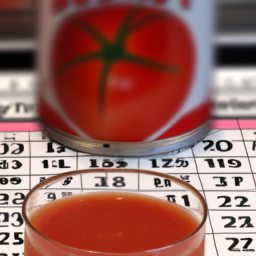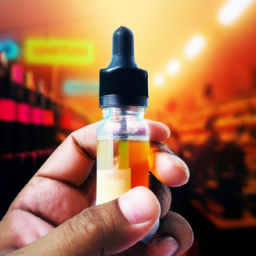Did you know that the global juice market is expected to reach a value of $257 billion by 2025? With a growing focus on health, juice has become a popular choice for those looking to improve their overall well-being. Juice fasting is a way to embrace this trend, where people only consume juice for a set period of time.
But how much juice should you drink on a juice fast? As someone who has completed several juice fasts, I understand the importance of finding the right balance of nutrients and calories to support your body during this process. Juice fasting can be a powerful tool for detoxifying the body, boosting energy levels, and improving digestion. However, it’s crucial to approach this practice with a clear understanding of your individual needs and health goals.
In this article, we’ll explore the factors to consider when determining how much juice to drink on a juice fast, as well as potential risks and negative effects to be aware of.
Key Takeaways
- Personalized recommendations for juice intake during a juice fast depend on individual factors.
- A general guideline is to consume 16-32 ounces of juice every 2-3 hours.
- It’s important to pay attention to your body’s signals and adjust accordingly.
- Balancing sugar and calories is key during a juice cleanse.
What is Juice Fasting?
Juice fasting, which involves consuming only fresh juices for a period of time, is a popular detoxification method. Many people choose to do a juice fast as a way to give their digestive system a break, rid their body of toxins, and potentially lose weight.
Juice fasting has been linked to various health benefits, such as improving liver function, reducing inflammation, and increasing energy levels. However, there are some common misconceptions about juice fasting that should be addressed.
Firstly, it’s important to note that juice fasting shouldn’t be used as a long-term solution for weight loss or as a replacement for a balanced diet. Additionally, juice fasting may not be suitable for everyone, particularly those with certain medical conditions.
Understanding your individual needs and consulting with a healthcare professional is crucial before starting a juice fast.
Understanding Your Individual Needs
You are the only one who truly knows how your body will react to the juice fast, so it’s important to listen to its signals and make adjustments accordingly – don’t worry, you won’t turn into a cucumber if you accidentally drink a bit too much! Personalized recommendations for juice intake during a fast depend on individual factors such as weight, age, gender, and activity level. However, a general guideline is to consume 16-32 ounces of juice every 2-3 hours, which equates to about 64-128 ounces of juice per day.
To tailor your juice intake to your individual needs, it’s important to pay attention to your body’s signals and adjust accordingly. If you feel hungry, increase the frequency of your juice intake, and if you feel full, decrease it. Additionally, if you experience any negative symptoms such as lightheadedness, headaches, or nausea, reduce the amount of juice you’re drinking or add more water to dilute it. Remember that each individual’s experience is unique, so it’s necessary to stay mindful of your body’s reactions and adjust your intake accordingly.
Transitioning into the subsequent section about setting realistic health goals, it’s important to remember that a juice fast is not a one-size-fits-all solution. It’s a tool to jumpstart a healthier lifestyle, and it’s essential to set realistic health goals that align with your individual needs and preferences.
Setting Realistic Health Goals
When setting realistic health goals, it’s important to consider your individual needs and preferences. This means taking into account your current health condition, lifestyle, and dietary restrictions.
It’s important not to set unrealistic expectations for yourself, as this can lead to frustration and disappointment. Instead, start with small, achievable goals and work your way up from there.
Tracking progress is also key to setting and achieving realistic health goals. This can involve keeping a journal of your juice intake and noting any changes in your body or energy levels. You may also want to schedule regular check-ins with a healthcare professional or nutritionist to ensure that you are on track and making progress towards your goals.
With patience and commitment, you can successfully complete a juice fast and improve your health and wellbeing.
Now, let’s move on to choosing the right type of juice for your needs.
Choosing the Right Type of Juice
When it comes to choosing the right type of juice for a juice fast, there are a few key points to consider.
First, it’s important to decide whether to focus on fruit juice or vegetable juice. While fruit juice can be tasty and provide a quick boost of energy, vegetable juice tends to be lower in sugar and higher in essential nutrients.
Additionally, it’s important to consider whether to opt for freshly squeezed juice or store-bought juice, as the latter may contain added sugars and preservatives.
Fruit Juice vs. Vegetable Juice
If you’re looking for a tasty and healthy juice to drink on your fast, consider mixing fruit and vegetable juices together to get the best of both worlds!
Both types of juice have their own unique benefits, and combining them can provide a wide range of nutrients that your body needs during a juice fast. Fruit juice is high in natural sugars, which can provide energy and help to satisfy your sweet tooth.
Vegetable juice, on the other hand, is low in calories and high in fiber, which can help to keep you feeling full and aid in weight loss.
Juice fast benefits can vary depending on the type and amount of juice consumed. Juicing for weight loss is a common reason for embarking on a juice fast, and combining fruit and vegetable juices is a great way to achieve this goal.
When choosing which types of juice to mix, it’s important to consider the sugar content of the fruit juice and balance it with the low-calorie vegetable juice. By mixing the two, you can create a delicious and nutritious juice that will help you to feel energized and satisfied throughout your fast.
That being said, it’s important to choose the right type of juice, whether it’s freshly squeezed or store-bought.
Freshly Squeezed vs. Store Bought Juice
Opting for freshly squeezed juice over store-bought can provide a more nutrient-dense option for your juice fast. The squeezed freshness of the juice ensures that the nutrients are intact and not lost through processing or preservatives. In addition, fresh juice typically has a higher nutritional value compared to store-bought juices.
Here are three reasons why freshly squeezed juice is a better option for your juice fast:
-
Freshly squeezed juice retains more vitamins and minerals than store-bought juice, which can lose nutrients during processing and storage.
-
Freshly squeezed juice is free from added sugars and preservatives that are often found in store-bought juice.
-
Freshly squeezed juice has a more natural taste and aroma, which can make your juice fast more enjoyable and satisfying.
As you consider how much juice to drink on your juice fast, keep in mind the benefits of choosing freshly squeezed juice. By opting for a more nutrient-dense option, you can maximize the benefits of your juice fast and support your overall health and well-being.
How Much Juice Should You Drink?
The key to success on a juice fast is finding the sweet spot, where you drink enough juice to nourish your body without overwhelming it. The amount of juice you should consume depends on several factors, such as your weight, activity level, and juice fasting goals. As a general rule, you should aim to drink at least 4-6 glasses of juice per day, each containing 16-20 ounces of juice.
To help you determine how much juice to drink on a juice fast, here is a table outlining the recommended juice intake based on different factors:
| Factors | Recommended Juice Intake |
|---|---|
| Weight | 1 ounce of juice per pound of body weight |
| Activity Level | 2-3 additional glasses of juice for moderate to high activity levels |
| Juice Fasting Goals | 4-6 glasses of juice per day for detoxification, 6-8 glasses for weight loss |
It is important to note that while juice fasting benefits include improved digestion, increased energy, and clearer skin, there are also some drawbacks to consider, such as potential nutrient deficiencies and the risk of consuming too much sugar. Therefore, it is important to listen to your body and consult with a healthcare professional before starting a juice fast.
When it comes to balancing sugar and caloric intake on a juice fast, it is important to choose juices that are low in sugar and high in nutrients, such as green juices or vegetable-based juices. Additionally, incorporating healthy fats and proteins into your diet can help stabilize blood sugar levels and prevent cravings.
Balancing Sugar and Caloric Intake
Balancing sugar and calories is key during a juice cleanse, and incorporating nutrient-dense, low-sugar juices along with healthy fats and proteins can help stabilize blood sugar levels and prevent cravings.
It’s important to monitor your intake and stick to daily limits to avoid overdoing it on sugar and calories. While juice is a great way to get in nutrients, too much of it can cause a spike in blood sugar levels and lead to energy crashes and cravings.
To avoid this, aim to incorporate juices that are lower in sugar such as green juices that contain leafy greens, cucumber, and celery. Adding healthy fats and proteins to your juices can also help slow down the absorption of sugar into the bloodstream.
Nuts, seeds, and avocado can be great options to add to your juices or to eat separately as a snack. Remember to also stay hydrated with water throughout the day to flush out toxins and keep your body functioning properly.
Hydrating with Water
Now that we’ve discussed how to balance sugar and caloric intake during a juice fast, let’s talk about the importance of hydrating with water. Water is essential to our bodies and plays a crucial role in our overall health.
When on a juice fast, it’s important to drink enough water to prevent dehydration. Dehydration can lead to headaches, fatigue, and dizziness. To avoid these symptoms, it’s recommended to drink at least 8-10 cups of water a day.
In addition to preventing dehydration, there are many benefits to staying hydrated while on a juice fast. Drinking water can help flush toxins out of the body and improve digestion. It can also keep your skin looking healthy and reduce the risk of kidney stones.
To make sure you’re getting enough water, try carrying a water bottle with you throughout the day and set reminders to drink water at regular intervals. By staying hydrated, you’ll feel better and get the most out of your juice fast.
Transitioning to the next section, it’s important to note that while water is essential during a juice fast, there are other supplements and nutrients you can incorporate to support your body.
Incorporating Other Supplements and Nutrients
Don’t miss out on the opportunity to give your body the extra boost it needs during your juice cleanse by incorporating supplements and nutrient-rich options.
While juice fasting can provide an abundance of vitamins and minerals, it’s important to supplement your intake with other nutrients to avoid any deficiencies.
Some popular supplement suggestions include probiotics, which can aid in digestion and support a healthy gut, and spirulina, a blue-green algae that is rich in protein, vitamins, and minerals.
Other nutrient-rich options to consider incorporating into your juice fast include leafy greens, such as kale and spinach, which are high in iron and vitamin K, and ginger, which can help reduce inflammation and promote healthy digestion.
Avocado is also a great option as it’s packed with healthy fats and fiber, which can help keep you feeling full and satisfied throughout the day.
By incorporating these supplements and nutrient-rich options, you’ll give your body the additional support it needs to thrive during your juice cleanse. However, it’s important to note that while these options can provide many benefits, there are also potential risks and negative effects associated with certain supplements and excessive nutrient intake.
It’s important to consult with a healthcare professional and do your research before adding any supplements or nutrient-rich options to your juice fast.
Potential Risks and Negative Effects
Be aware that there are potential risks and negative effects associated with incorporating certain supplements and nutrient-rich options into your juice cleanse, so it’s important to consult with a healthcare professional and do your research beforehand.
Some possible discussion ideas for ‘potential risks and negative effects’ include dehydration risks, nutrient deficiencies, and potential adverse reactions to certain supplements or herbs.
Dehydration risks are a major concern during a juice cleanse, especially if you’re not drinking enough water or consuming juices that are low in water content. This can lead to symptoms such as headaches, dizziness, dry mouth, and fatigue.
It’s important to drink plenty of water throughout the day and to choose juices that are high in water content, such as cucumber, watermelon, and celery. Additionally, nutrient deficiencies can occur if you’re not consuming a variety of juices that contain a wide range of vitamins and minerals.
This can lead to symptoms such as fatigue, weakness, and irritability. It’s important to choose a variety of juices that contain a wide range of nutrients and to supplement with additional vitamins and minerals if necessary.
Frequently Asked Questions
Can I drink coffee or tea during a juice fast?
While coffee and tea can be enjoyed during a juice fast, they may have drawbacks such as caffeine and sugar. Alternatives and substitutes include herbal teas and water. Benefits include added flavor and hydration, but be mindful of the added ingredients.
How long should a juice fast last?
A juice fast can last anywhere from a few days to several weeks. Extending the fast can provide benefits such as improved digestion and increased energy, but it’s important to break the fast safely with small, nutrient-dense meals.
Is it safe to exercise while on a juice fast?
Exercising while on a juice fast can be safe, but it’s important to listen to your body and adjust the intensity accordingly. Combining a juice fast with exercise can aid in weight loss, but consult a healthcare professional before starting any new regimen.
Should I continue taking medications during a juice fast?
During a juice fast, it’s important to consult with a healthcare provider regarding medications. Some medications might need to be adjusted or stopped due to potential side effects. It’s crucial to prioritize safety and health during a juice fast.
How can I prevent feeling hungry during a juice fast?
To prevent feeling hungry during a juice fast, I can try hunger hacks like drinking water or herbal tea, distracting myself with light activities, and consuming meal replacement options like nut milk or blended soups.
Conclusion
In conclusion, juice fasting can be a beneficial way to reset your body and improve your health. However, it’s important to understand your individual needs and set realistic goals for yourself.
Choosing the right type of juice and monitoring your sugar and caloric intake is crucial for success. Think of your body as a garden that needs proper nourishment and care to thrive. Just like different plants require different amounts of water and sunlight, your body requires a specific balance of nutrients to function at its best.
Juice fasting can be a way to give your body the nutrients it needs, but it’s important to approach it with caution and awareness. By listening to your body and incorporating the right supplements and nutrients, you can reap the benefits of juice fasting while avoiding any potential risks or negative effects.
Ilana has been a vegan for over 10 years. She originally made the switch for health reasons, but soon found herself becoming more and more passionate about the ethical and environmental implications of a vegan lifestyle. Ilana is the author of The Graceful Kitchen, a blog all about veganism. She loves to cook up delicious and nutritious vegan meals, and share her recipes with others who are interested in leading a cruelty-free life. Ilana is also a strong advocate for using whole foods as the foundation of a healthy diet, and believes that going vegan is one of the best ways to achieve this.










